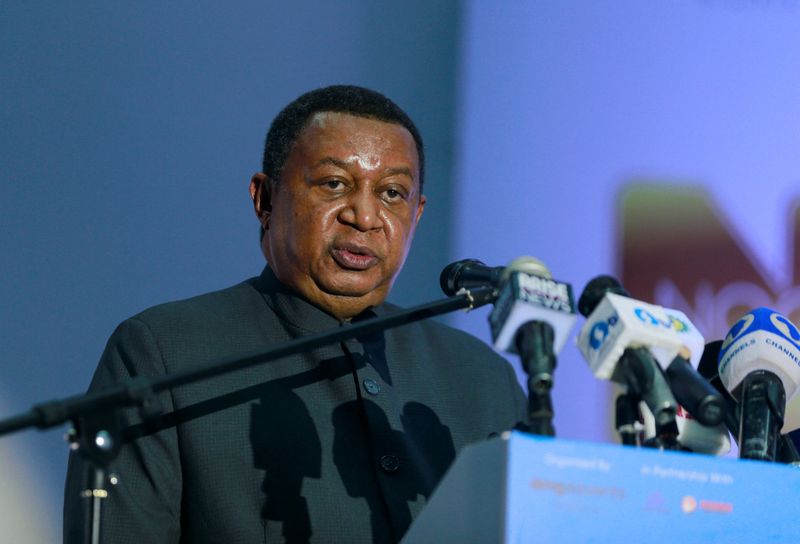By MacDonald Dzirutwe
ABUJA (Reuters) - Mohammad Barkindo, the outgoing secretary general of OPEC who played a key role in forming the wider OPEC+ group of oil producers that has helped the industry navigate global shocks, has died aged 63.
The Nigerian oil industry veteran was due to step down at the end of this month after six years in the top job at the Organization of the Petroleum Exporting Countries (OPEC).
Barkindo died late on Tuesday, Mele Kyari, the boss of the Nigerian National Petroleum Corp (NNPC), wrote on Twitter (NYSE:TWTR), calling the death "a great loss".
Hours earlier Barkindo had met Nigerian President Muhammadu Buhari and given a speech at an Abuja energy summit.
Kyari said Barkindo would be buried in his home town of Yola at 4 p.m. on Wednesday.
OPEC's key decisions are taken by ministers from Saudi Arabia and other top producers, but the secretary general represents the group on the world stage and has an important diplomatic role in helping the ministers reach consensus.
Haitham al-Ghais of Kuwait is scheduled to take over the job on Aug. 1.
The OPEC Secretariat on Twitter expressed its "sorrow and deep gratitude for the over 40 years of selfless service" which Barkindo gave.
Barkindo's career in the oil industry began in Nigeria in the early 1980s. He served in various capacities at the NNPC and represented Nigeria on OPEC's Economic Commission Board, a technical panel.
He was acting OPEC secretary general in 2006 before returning to the position 10 years later, when he helped set up OPEC+ as OPEC members joined forces with Russia and other non-members to cooperate on oil supply.
OPEC+ helped to erase a supply glut that built up between 2014 and 2016 and in 2020 organised a record output cut as the pandemic hammered demand.
"He will be remembered as a significant figure in the history of global energy governance," said Joseph McMonigle, secretary general of the International Energy Forum.
"He was an exceptional diplomat who made a remarkable contribution to the stability of global energy markets."
Russian Deputy Prime Minister Alexander Novak in a statement paid tribute to Barkindo as one of the initiators of OPEC+ and an advocate of constructive dialogue with Moscow.
Barkindo "made a significant contribution to the formation of a consolidated position of the participating countries," Novak said, which "for several years have been successfully balancing the global oil market."
INDUSTRY REELING
During his keynote speech in Abuja hours before his death, Barkindo said the oil and gas industry was "under siege" and reeling from enormous investment losses in recent years.
He argued that while it was necessary to reduce emissions, oil was still essential and he recently conveyed to the European Union OPEC's concerns about a ban on Russian oil over its impact on consumers.
"Serving as Secretary General of OPEC for two terms has been the honour of a lifetime. Over the past six years, we have witnessed both challenging and historic moments, which have underscored time and again the importance of cooperation and teamwork," Barkindo said in his speech.
Diamantino Azevedo, oil minister for OPEC member Angola, said in a statement that Barkindo always sought consensus for the good of the organisation.

After leaving OPEC, Barkindo was due to join U.S. think tank the Atlantic Council's Global Energy Center as a distinguished fellow, the Council recently announced.
Al-Ghais, soon after he was named as Barkindo's successor, said a priority for him was to keep the OPEC+ pact in place as it is in the oil industry's wider interest.